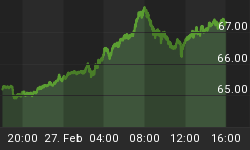The latest round of optimism on display late last week from Wall Street was based upon the supposed resolution--once again--of all Europe's problems. However, the sad truth is the move upward only brought the S&P500 near the unchanged mark on the year in nominal terms and much lower when adjusted for inflation.
What was the cause for this optimism you ask? It was the speculation that an epiphany had been reached on the part of the European Central Bank that they would arm themselves with a bazooka to purchase all of the PIIGS distressed sovereign debt. Under its Securities Markets Program (SMP), the ECB has already bought billions of Euros worth of government bonds issued by Italy, Spain and other troubled euro area economies. The global equity market has now assented to the notion that the new ECB head, Mario Draghi, is going to borrow Hank Paulson's bazooka, which was first deployed to rescue FNM and FRE. But years after Secretary Paulson fired his bazooka, those formerly thought of as "safe "investments are now trading at just pennies a share. And just last week the government--or more appropriately the taxpayer--was forced to throw an additional $7.8 billion at the GSEs for the last quarter's losses. That was on top of the $169 billion they have already spent to rescue the black holes known as Fannie and Freddie since 2008.
Nice bazooka Hank! You see, the problem with arming any government with a bazooka is that they are guaranteed to have the need to fire it. Mario Draghi is making the same mistake as our former Treasury Secretary did during our financial crisis. Paulson believed that the problem with the GSEs was a lack of confidence. The thought process was that if he threatened to buy all of the GSE obligations, he would never have to actually do it. However, the truth was that the FNM and FRE owned or guaranteed mortgages that were worthless. Offering to buy these garbage investments did nothing in the way of solving the problem of people owning homes that they couldn't afford. Similarly, Draghi now believes that the problem with European debt is fear, not one of insolvency.
And just like Hank, Mario will soon learn that offering to purchase an unlimited amount of Italian debt does nothing in the way of bringing down the debt to GDP ratio. In fact, it has the exact opposite effect. It encourages more profligate spending, just as it also lowers the growth of the economy by creating inflation. What's even worse is that yields on Italian debt will reach much higher levels in the longer term. That's because the purchasers of sovereign debt have now become aware that their principal will be repaid with a rapidly depreciating currency. Therefore, the yield they will require in the future must reflect the decision to use inflation as a means of paying off debt.
What is unfortunately assured is that several countries in Europe are facing a recession due to their overwhelming level of debt. One of the consequences of having a debt to GDP ratio over 100% is that the economy ceases to grow. But to make matters even worse, the ECB has decided to deploy their arsenal against rising bond yields. Therefore, the significant downturn in the economy will be also be accompanied by a high rate of inflation.
The situation in Greece, and perhaps soon to be in other countries, is not that different from an individual that is using nearly all of his or her income to pay the minimum interest payment on their credit cards. Once the C.C. Company gets wind of that, they are likely to pull in all lines of credit because the chance of getting their principal back has become nil. However, unlike an individual, a country with a fiat currency can counterfeit as much currency as they please. But that is a temporary solution at best.
For now the yield on the Italian 10 year note has declined from 7.3% on Wednesday the 9th to 6.5% on Friday. But the ECB has a very short window in which they can create inflation to bring down bond yields. That's because the main determinants of how much it costs a country to borrow money in the international markets are the credit, currency and inflation risks of their debt. In pulling out his inflation bazooka, Mr Draghi is rapidly increasing all three risks and much higher yields are virtually guaranteed in the near future
Of course, not to be outdone Mr. Bernanke and his cadre of counterfeiters at the Fed have sent oil prices back to $100 a barrel, M2 up 10% YOY and the Misery Index to a 28 year high. The threat of yet more quantitative easing has sent many commodity prices rising and gold in shouting distance of its record nominal high. With central bankers around the globe consistently coming up with plans to destroy paper currencies, can someone justify a reason not to buy more gold and gold stocks!















